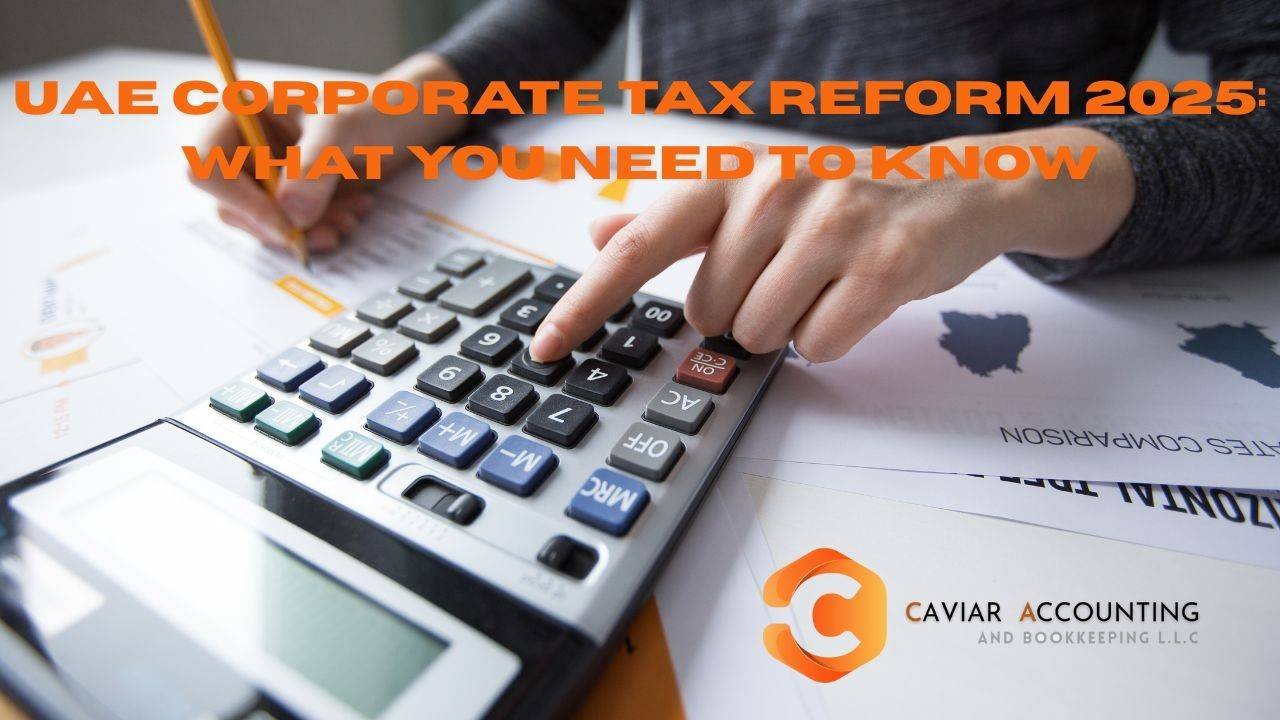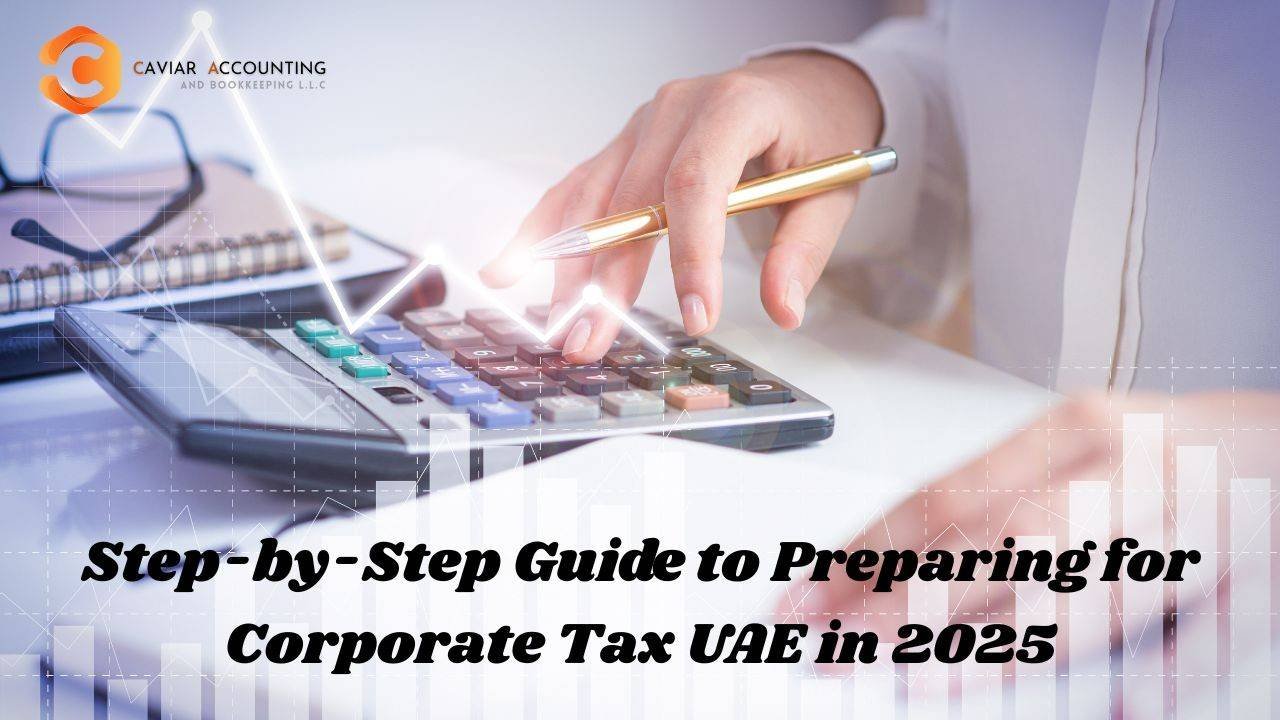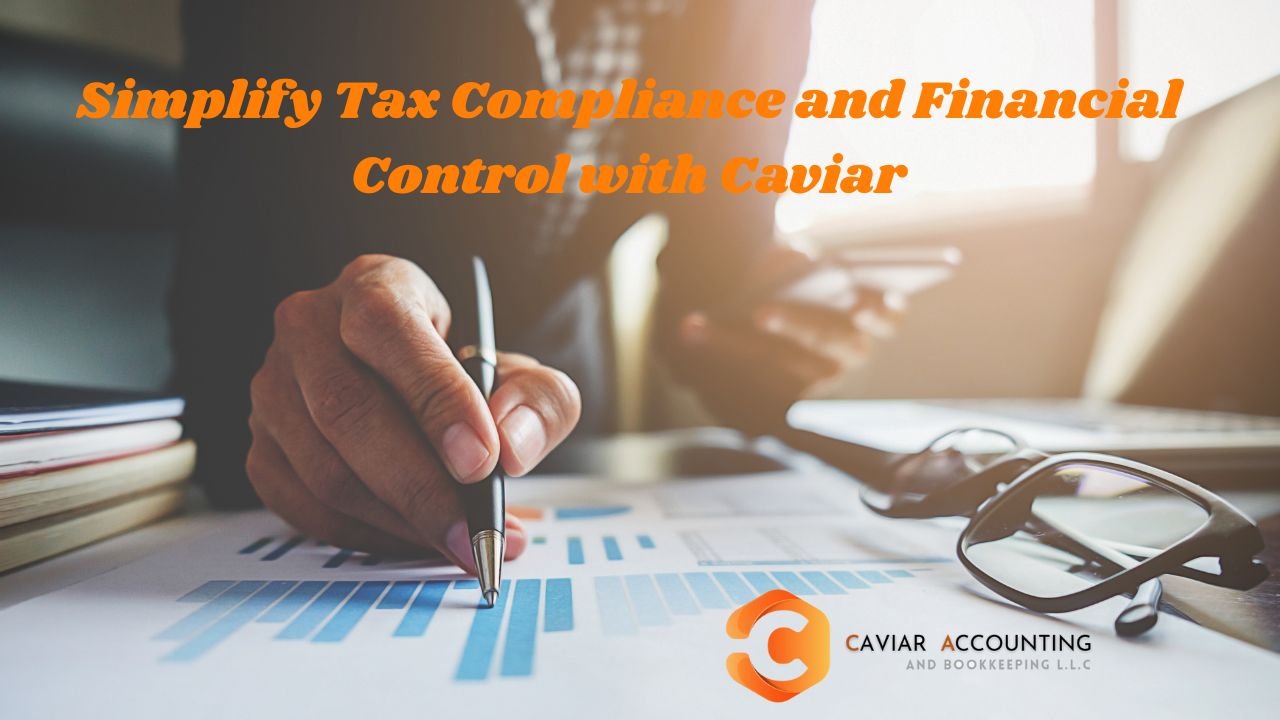UAE Corporate Tax Reform 2025: What You Need to Know

The tax structure of the UAE’s corporations has undergone a dramatic change by 2025. Based on the federal tax rate of 9%, which was which was implemented in 2023. The change introduces a domestic minimum top up tax (DMTT) of 15 per cent for large multinational corporations starting January 1 2025. In the meantime, favourable levels and exemptions for free zones remain in place to help local SMEs and entrepreneurs. The UAE Corporate Tax Reform of 2025 represents an essential change in the fiscal environment of the country by introducing a standard corporate tax that will increase the transparency of taxation and align with international tax regulations.
It is believed that the United Arab Emirates is the largest business hub in the globe and is a magnet for businesses from all over the world due to its tax friendly business environment. Starting in January 2025, the nation plans to introduce a minimum top up tax in its domestic market (DMTT) of 15% on multinational firms. The Organisation for Economic Cooperation Development(OECD) initiated this project to be a part of the world’s minimum tax framework in order to ensure an honest and transparent tax system and to prevent tax avoidance.
Key Tax Changes
1. Corporate Tax Rates
- 0 per cent in profits of up to AED 375,000
- 9 % average rate of profit over AED 375,000
- 15% for in-scope multinational companies (MNEs), which have worldwide revenues greater than EUR750 million for at most two of the preceding four years.
2. Free Zone & SME Relief
- The Qualifying Free Zone People have the option of retaining zero tax if they satisfy standards of substance and trade.
- SMEs can get relief from thresholds of AED 375,000 threshold
3. OECD Pillar Two & DMTT
- 15% of DMTT is in line with UAE law to Pillar Two/GloBE of the OECD by imposing a minimal effective global rate on the largest MNEs
- Cabinet Decision No. 1422 (Feb 2025) will be operationalizing DMTT beginning January 1st of 2025.
Implication of New Corporate Tax on Multinational Organizations

With the introduction of the brand new domestic minimum top-up tax (DMTT), MNE must be able to overcome the challenges and also opportunities:•
- Compliance and Reporting UAE multinational corporations must make sure that their financial statements are in line with the latest tax policies. It is crucial to observe the strictest standards of UAE taxes for corporate entities.
- Operating Cost: A new corporate tax rate of 15% can result in an increase in operating expenses, such as taxes as well as tax compliance costs and the reporting process, all of which impact the budgets of multinational firms.
- Maintaining Global Competition: UAE is a thriving commercial hub with a strong strategic location and two taxation agreements despite the current tax law.
Key Benefits of 15% Corporate Tax for the UAE Economy
The introduction of a 15% corporation tax offers several advantages. It is a good idea to consider the following benefits.
- Global Alignment UAE, because it is a business hub, adheres to OECD world standards.
- Increased Revenue New 15% corporate tax will increase revenue and boost the UAE economy.
- Economic Diversification: Tax revenue is expected to contribute to public revenue generated from the non-oil industries, including construction, manufacturing and education, as well as technology as well as healthcare.
A Strategic Approach: Preparing for New Tax Changes:
To be successful in navigating the ever changing UAE corporate tax structure, businesses should adopt a shrewd and sensible approach
The Tax Impact Assessment: Businesses need to consider how changes in tax rates, such as those with a 15% DMTT rate for MNEs, impact their financial structure and plans.
Systems and Processes Upgrades: Companies must invest in reliable software for accounting, tax reporting tools, as well as staff instruction to guarantee the accuracy of timely and compliant tax filings.
Professional Consulting: Engaging Tax advisors and experts can be crucial to understanding the complex rules, maximizing deductions and understanding appropriate incentives, exemptions, or other deductions.
Future Ready Planning Companies must align their tax strategies with their business goals and take into consideration the R&D credits as well as exemption from tax, Free Zone access, as well as potential acquisitions and expansions to ensure that they remain efficient and compliant within the business environment of the UAE.
Step-by-Step Guide to Preparing for Corporate Tax UAE in 2025

Assess Your Business's Tax Liability
- Check if your firm’s earnings exceed AED 375,000, and then determine what percentage of the company tax will apply.
- For multinational companies. Examine whether your global earnings exceed the EUR750 million threshold that triggers the 15 per cent DMT.
Register for Corporate Tax
- Businesses and natural persons need to sign up for corporate tax on or before March 31st 2025, to avoid being liable for administrative fines.
- Make sure that all organizations, including freelancers as well as free-zone businesses, understand the registration requirements.
Review Free Zone Status and Exemptions
- Free-zone companies that qualify for HTML0 may get a 0% tax rate under certain conditions. But any profits not qualifying are taxed by the company.
- Examine your eligibility to ensure you comply with the free zone guidelines to maximize tax benefits.
Update Accounting and Reporting Systems
- Create strong accounting frameworks for accurate calculation of tax-free income, allowable deductions as well as exceptions.
- Get ready for the brand new standards of compliance that include price documentation for switches as well as the participation exemption regulations that will be introduced in 2025.
Understand and Leverage Tax Incentives
- Discover tax incentives related to the development of research (R&D) as well as high-cost work and allowances for funding.
- Talk to tax experts for all pertinent advantages as well as reduce taxes legally.
Plan for the Domestic Minimum Top-Up Tax
- Big MNEs should look at their tax obligations worldwide to calculate the 15 per cent tax rate for DMTT.
- Align tax strategies by OECD guidelines to stay away from double taxation while maximizing the efficiency of taxation across the globe.
Stay Informed on Deadlines and Compliance
- The initial tax returns for the new tax system are due on September 30, 2025, for companies with a year-end of December 31, 2024. date of year end.
- Be informed about any changes or ministerial decisions that could impact tax business and exemptions, as well as administration procedures
Simplify Tax Compliance and Financial Control with Caviar

A UAE corporation tax overhaul for 2025 introduces new levels of difficulty for startup companies to multinational companies. The process of navigating these changes demands more precise financial controls, constant transparency as well as bulletproof conformity. This is precisely what Caviar can help.
We’ve developed a comprehensive business spending management system specifically designed to meet the needs of the current tax regime in the UAE. It gives you total control over your business expenses and makes the tedious tasks easier to complete, which holds your finance department in the dark.
Here’s how Alaan supports your finance team:
- Real-time tracking of expenses: Track every dime used across departments, teams or even projects immediately, all in one location.
- Auto-categorization of VAT Transactions are automatically categorized to ensure VAT compliance, making the filing process faster and more accurate.
- Receipt match-ups are ready for audit. No more lost receipts or manually entering data. Alaan stores all documentation within a central and searchable dashboard.
- Spending policies that can be customized: Create granular spending limitations, limit vendors and develop approval workflows specific to the structure of your business.
- Integration-ready: Integrate seamlessly into ERP and accounting software to provide accurate reconciliations and easy financial reports.
Through Caviar, it is easier to spend and automate tax preparation with your finance team’s powerful tools and remain in compliance with the changing UAE tax laws.
Conclusion
The UAE’s corporate tax reform is a significant turning point within the regional business scene. In order to align the UAE to global standards via the domestic minimum of 15% Top-Up Tax and the full implementation of the federal 9% corporate tax in uae rate, firms need to shift their focus from reactive to active financial management. It doesn’t matter if you’re a new business evaluating your eligibility for free zones as well as an SME prepping the necessary tax audits, or a multinational company managing transfer pricing as well as global reporting requirements, the need for well-organized, legally compliant and technologically-enabled tax management is never greater.
In Caviar, we assist you in making this change easier. Our artificial intelligence-powered platform for managing your spending helps automate tax tracking, improves expense reporting, guarantees VAT compliance and tax compliance for corporate entities and saves your staff time each month. Real-time monitoring of your financials, apply the most efficient spending policies as well as seamlessly connect into your accounting system to remain audit-ready all the time.
FAQ
- Corporate tax was implemented for financial years starting on or after June 1, 2023
- 0% on profits up to AED 375,000, 9% on earnings above that analytics.ae+8alaan.com+8en. Wikipedia.org+8.
Beginning January 1 of 2025 from January 1, 2025, a 15% domestic minimum Top-Up Tax (DMTT) applies to companies based in the UAE that are part of multinational corporations which have greater than EUR750 million in revenues worldwide.
There is a plan for the introduction of the creation of new tax credit programs (e.g., R&D and high-value jobs creation) with legislative approval. These could come into effect by 2025 to
- Multinationals that have EUR750 million more in consolidated earnings for at least two of the preceding four years
- UAE Free Zone firms within these groupings could also be subject to additional tax if their tax rate is less than 15%.
QFZ Persons (QFZPs) can receive no tax on income that is qualified in the following circumstances:
In the same zone, maintain substance,
Don't primarily trade with the mainland UAE,
Follow the transfer pricing/document
- Branch offices, companies with a UAE incorporation of foreign corporations that have a permanent Establishment and people who are conducting business (e.g., freelancers)

